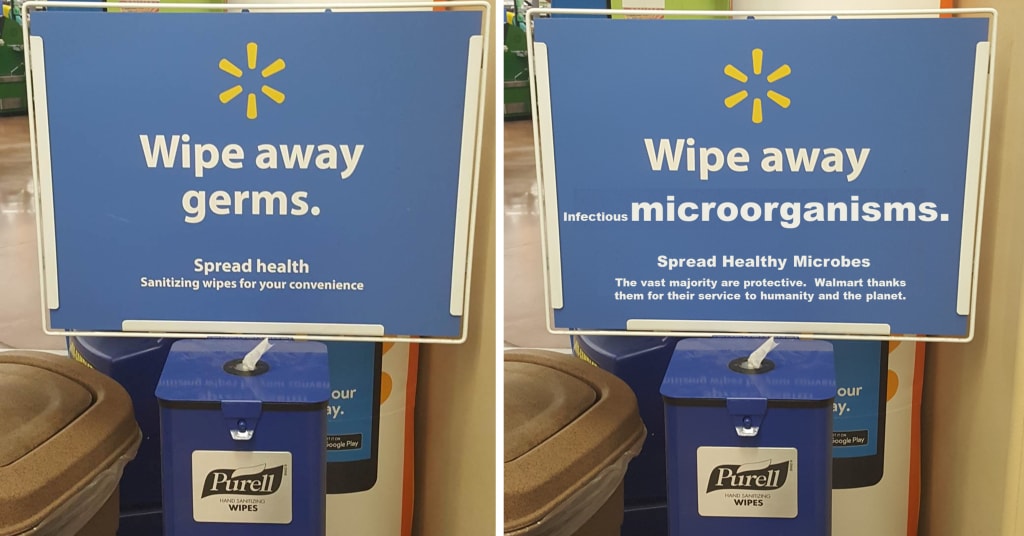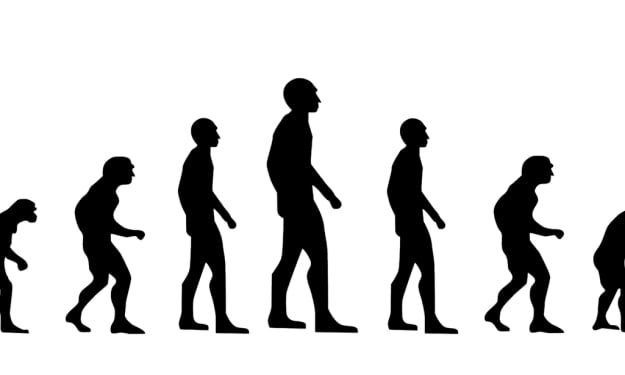The Word "Germs" Has Got to Go
Its Association with Death and Disease Unfairly Tarnishes the Reputations of the Vast Majority of Microorganisms

Let me start by stating that this is not one of my The Onion like satirical fake news stories for which I have become (not at all) famous. I am genuinely, seriously, committed to this issue and absolutely believe that the word 'germ' needs to be retired from the lexicons of both microbiologists and the general public. The word carries so much totally undeserved negative baggage, and it does a grave disservice to the vast, vast, vast majority of microorganisms living on this planet, and likely, many others. It unfairly tarnishes the reputations of all the countless microbes that are either slightly beneficial, greatly beneficial or fundamentally necessary to our lives and the lives of all other living macroorganisms, on our planet. When I say countless I am not exaggerating either as the numbers are truly mind boggling. Only a few amazing facts borrowed from a very good book, (Philosophy of Microbiology. 2014. Maureen O’Malley. Cambridge University Press. Pgs. 3–5) about our microbial brethren are included below to give you a sense of what I mean.
1. There are an estimated 4–6 x 10³⁰ prokaryotes on, below, and above planet earth and about an order of magnitude more viruses.
2. There are an estimated 10¹⁶ prokaryotes/tonne of soil. Compared to 10¹¹ stars in the milky way.
3. 1 g of soil yields an average of 10⁷ unique “species”. The number of cells in just 1 tsp. exceeds the entire current human population of the continent of Africa.
4. More than 50% of the biomass of earth is prokaryotic even though prokaryotic cells are just 1/10 the diameter of eukaryotic cells (the cells of plants and animals), and 1/1000th the volume.
5. In the oceans they make up more than 90% of the biomass and the number (~10²⁸) is about 100 million times more than the estimated number of stars in the universe.
I do not say this to tarnish the reputation of a legendary microbiologist for surely he would be as appalled as myself at the current status of the word, but the blame for this negative associations with the word "germ" falls at the feet of Robert Koch. It was his famous postulates which served as the foundation for the "germ theory of disease", the theory that microorganisms were responsible for the spread of infectious disease, that cemented the term "germ" as all bad in human minds. Since that time the word germ has been associated with dirtiness, disease, death, filth, and all things bad. In case you never studied the history of microbiology in school, Koch's postulates are four criteria designed to establish a causal relationship between a given microbe and a disease. The postulates were formulated by Robert Koch and Friedrich Loeffler in 1884, then refined and published by Koch in 1890. Even in this age of probiotics when microorganisms are being added to a variety of consumer products for their known and hypothesized health benefits, the negative view of microorganisms role in human health is still greatly exaggerated in comparison to their massively much more impactful positive role.
Finally, a few comments on the Walmart sign shown in the banner image which has several problems. First, they are microorganisms, not germs. Second, "wiping away” “germs” would not be a very safe or healthy idea. Instead you only want to “wipe away” the (very few) “germs” that cause disease in humans. Thirdly, I need to point out that "wiping away” a microorganism adhered to your hands would be virtually impossible for several reasons. Rather it is the chemicals (alcohol) in the wipes that will kill a (very small) portion of them. Using soap will aid in "wiping" away some "germs" as the detergent in soap can cause said germs to become loosened from the surface and then washed away with the soap when the hands are rinsed, however even that process is far from 100% effective. By and large, most soaps are not, in and of themselves, actually antimicrobial at all, and in fact many bacteria can live happily on and within a variety of detergents, including soap. This is why many soaps and almost all cosmetics have preservatives added to their formulations. These preservatives do not generally kill the normal flora of the product but do prevent them from growing to large numbers. This is done mainly because of product quality, not human health associated concerns.
In any event I fixed the sign for Walmart. Normally my fee for creating marketing materials of this nature runs into the mid five figures, however, I did this one free as a public service.
About the Creator
Everyday Junglist
Practicing mage of the natural sciences (Ph.D. micro/mol bio), Thought middle manager, Everyday Junglist, Boulderer, Cat lover, No tie shoelace user, Humorist, Argan oil aficionado. Occasional LinkedIn & Facebook user






Comments (2)
Is it strange that I thought of this: https://youtu.be/xtuUy9-6g-o?si=2NCepQLP8WLuicYq
Interesting article and I agree with the idea that's its healthier to be exposed to the natural biome of microbes. One point, I heard during the pandemic (on the TWIV podcast) that detergents break the oil barrier on most viruses and bacteria and kill them almost instantly ?